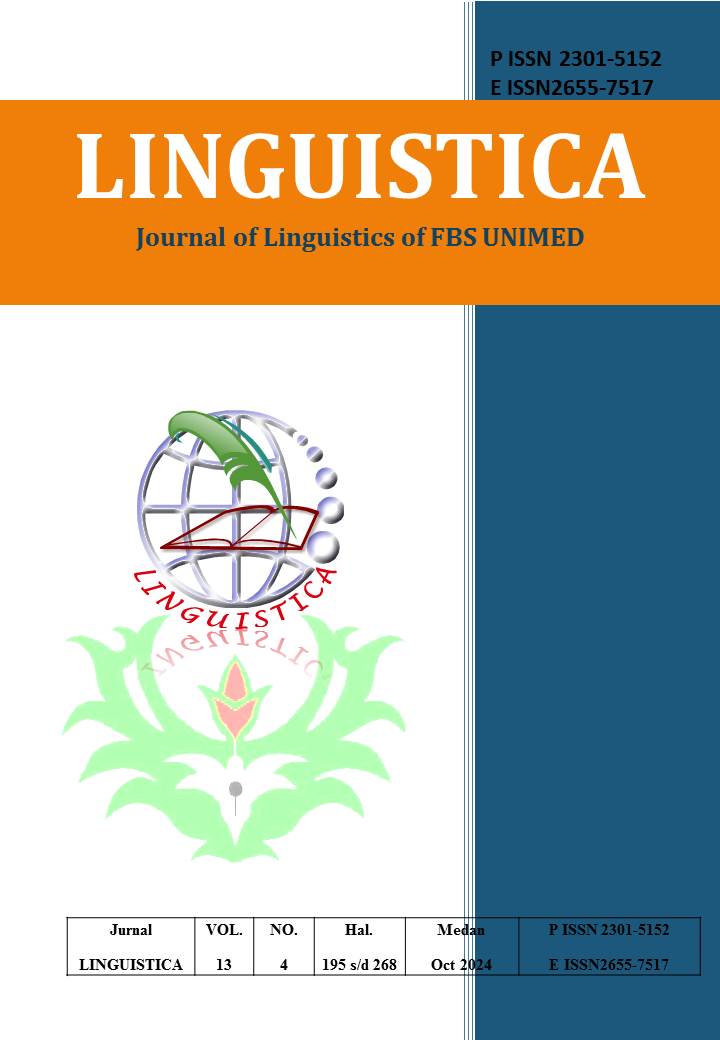Ideal Student Prototype: A Cognitive Linguistic Study
DOI:
https://doi.org/10.24114/jalu.v14i2.65048Abstract
The term “Ideal Student” does not yet have a definition that can accurately describe it. Because of the many human perceptions of how the student can be said to be ideal. The number of categories of each person in expressing the concept of the ideal student itself. So that it creates a diverse prototype in its meaning. This research is based on cognitive linguistic studies. Namely examining a human mind on his speech. This research aims to describe the ideal student prototype in the Ideal Cognitive Model (ICM). This model is able to represent the conceptual knowledge of the ideal speaker without denying other concepts. The researcher provides a commonly spoken concept and respondents will choose according to their cognition of the term ideal student. The data was collected and classified to find the Ideal Meaning in the cognition. Analyzed and classified the type of prototype referring to Lakoff's theory. The results of the analysis are described in the form of tables and explanations of the model. In conclusion, in the ideal student prototype there are three top models in the form of having many soft skills, diligent and active organizations. Keywords: ideal Student; cognitive Linguistics; prototype.Downloads
Published
2025-04-26
How to Cite
Rifa’i, M. H., Baking, A. N. S. S., & Wulandari, B. A. (2025). Ideal Student Prototype: A Cognitive Linguistic Study. LINGUISTICA, 14(2), 100–107. https://doi.org/10.24114/jalu.v14i2.65048
Issue
Section
Articles
License
Copyright (c) 2025 Muhamad Husain Rifa’i, Aad Nur Sayyidus Syuhuur BakingAad Nur Sayyidus Syuhuur Baking, Betty Ayunda Wulandari

This work is licensed under a Creative Commons Attribution-ShareAlike 4.0 International License.
Authors who publish with this journal agree to the following terms:
- Authors retain copyright and grant the journal the right of first publication with the work simultaneously licensed under a Creative Commons Attribution License that allows others to share the work with an acknowledgment of the work's authorship and initial publication in this journal.
- Authors are able to enter into separate, additional contractual arrangements for the non-exclusive distribution of the journal's published version of the work (e.g., post it to an institutional repository or publish it in a book), with an acknowledgment of its initial publication in this journal.
- Authors are permitted and encouraged to post their work online (e.g., in institutional repositories or on their website) prior to and during the submission process, as it can lead to productive exchanges, as well as earlier and greater citation of published work (See The Effect of Open Access).
- This work is licensed under a Creative Commons Attribution-ShareAlike 4.0 International License.









